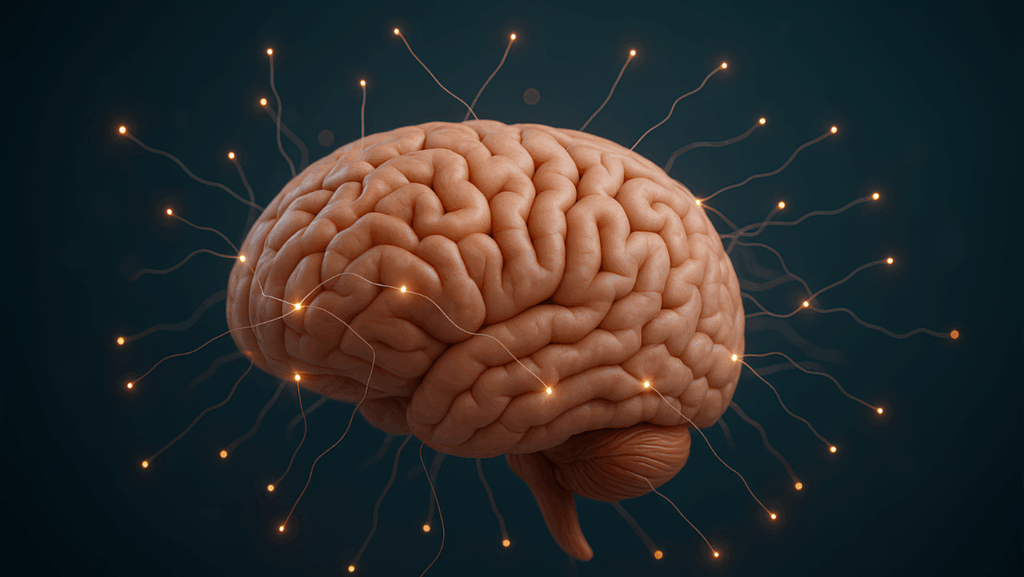
In today’s information-rich, always-on world, those who excel are not just working harder — they’re thinking smarter. Whether you’re an entrepreneur juggling multiple ventures, a student striving for academic excellence, or simply someone who wants to stay mentally sharp as the years go by, cultivating a cognitive edge is the smart path to peak performance.
This isn’t just about drinking more coffee. It’s about building sustainable, science-backed habits that help you process information faster, stay laser-focused for longer, and perform at your best when it matters most.
What Is the Cognitive Edge?
Cognitive edge refers to a heightened state of mental functioning where attention, memory, decision-making, and information processing are operating at their highest levels. It’s the mental equivalent of being in peak physical shape — fast, agile, and resilient.
Think of it as a formula: Cognitive Edge = Speed + Focus + Endurance + Clarity
In a world driven by rapid decision-making, this edge is what separates high performers from the average. And while it may sound like a gift reserved for geniuses or elite athletes, the truth is that anyone can build it with the right tools and mindset.
The Science of Mental Performance
Your brain is your command center, and like any other organ, it thrives under certain conditions.
- Neuroplasticity: Your brain’s ability to rewire itself in response to learning and experience. This is how new skills and habits form.
- Neurotransmitters: Chemicals like dopamine, serotonin, acetylcholine, and norepinephrine that regulate mood, focus, and cognitive stamina.
- The Prefrontal Cortex: The decision-making and attention-controlling region of the brain. This is where deep work happens.
Scientific research consistently shows that lifestyle factors—like how well you sleep, what you eat, how you move, and how you manage stress—have a profound effect on cognitive function. The right habits can support long-term brain health and short-term performance.
Foundational Habits That Sharpen the Mind
Before turning to cognitive enhancers, it’s essential to build a strong mental foundation with healthy daily habits.
- Sleep: Quality sleep resets the brain, consolidates memory, and clears waste. Aim for 7–9 hours nightly, stick to a regular schedule, and limit screens before bed.
- Nutrition: Fuel your brain with omega-3s, berries, and leafy greens. These nutrients support memory, protect brain cells, and slow cognitive decline. Avoid sugar crashes and processed foods that lead to brain fog.
- Movement: Regular exercise boosts blood flow and releases BDNF, enhancing mental clarity. Aim for 30 minutes of daily activity like walking, plus occasional strength or flexibility training.
- Mindfulness: Just 10 minutes of daily meditation can improve focus, reduce stress, and sharpen memory. Use apps like Headspace or Insight Timer to get started.
How Nootropics Help You Gain a Cognitive Edge
Once you’ve laid the foundation with good habits, nootropics—also known as cognitive enhancers—can take your performance to the next level. These are compounds that support various aspects of brain function, including focus, memory, alertness, and mental energy.
Whether natural or synthetic, the goal of a nootropic is to help your brain work more efficiently, especially during times of high demand.
Different nootropics target different mechanisms in the brain:
- Some boost neurotransmitter levels, like acetylcholine for memory or dopamine for motivation.
- Others enhance blood flow to the brain, increasing oxygen and nutrient delivery.
- Some promote neurogenesis, helping your brain form new connections faster.
If you’re interested in enhancing your focus or productivity, you can get a cognitive support supplement backed by science through reputable platforms that offer transparent ingredient sourcing and clinical validation.
Stacking: Combining for Maximum Effect
Experienced users often build nootropic stacks, combining ingredients that work synergistically. For example:
- Caffeine + L-Theanine for calm alertness.
- Citicoline + Racetams for enhanced focus and memory.
If you’re new, it’s best to start with single compounds to assess how your body responds.
Tools and Techniques to Train Your Brain
Boosting cognitive performance goes beyond nutrition and supplements—it also involves consistent mental training. Digital brain-training platforms like Lumosity and BrainHQ provide scientifically designed games that challenge your memory, attention span, and processing speed. Elevate, another popular app, hones in on real-world skills such as language proficiency and mathematical reasoning, making brain training both practical and engaging.
Analog methods are equally powerful. Classic games like chess and Go demand strategic thinking and long-term planning, making them excellent tools for sharpening mental agility. Practices like journaling and mind mapping help clarify thoughts, enhance creativity, and strengthen memory recall. For those seeking a more structured cognitive workout, Dual N-Back training has shown scientific promise in improving working memory and increasing overall fluid intelligence. Together, these tools offer a multi-faceted approach to cultivating a sharper, more resilient mind.
Final Thoughts
The pursuit of a cognitive edge is not about perfection—it’s about progress. The most effective path blends science-backed routines, thoughtful supplementation, and regular mental training. There’s no silver bullet, but with the right system, anyone can think faster and focus longer.
Start with sleep. Build in movement. Feed your brain well. Then, if you’re ready, explore the right nootropics to elevate your performance.
Your brain is your most valuable asset. Invest wisely—and you’ll not only keep up with the pace of modern life, you’ll lead it.













